Cambridge and India
Understanding Humanity
By understanding the past, we come to a better understanding of the present; by studying humanity in all its guises, we come closer to understanding ourselves. At the turn of the 20th century WHR Rivers pioneered the modern anthropological method at Cambridge, becoming the first director of the University's psychological laboratory. Today his successors in the Faculty of Archaeology and Anthropology bring us closer to solving great puzzles such as the origins of modern man.
Working with Banaras Hindu University and Uttar Pradesh State Department of Archaeology, Professor Dilip Chakrabarti recently completed a 14-year study of the Ganga Plain, covering more than 1,000 sites in northern India, many of them hitherto unrecorded. Two new projects funded by UKIERI (see below) will shed further light on early Indian history by bringing together archaeologists and anthropologists from Cambridge and India.
Dr Toomas Kivisild
Department of Biological Anthropology
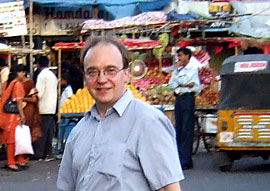 Dr Kivisild is a lecturer in Human Evolutionary Genetics at the Leverhulme Centre for Human Evolutionary Studies. His research interests include most generally human evolution and evolutionary population genetics, with a particular focus on questions relating global genetic population structure with evolutionary processes such as selection, drift, migrations and admixture. One of the major topics of research has been genetic diversity in South Asia and its role in the settlement of Eurasia.
Dr Kivisild is a lecturer in Human Evolutionary Genetics at the Leverhulme Centre for Human Evolutionary Studies. His research interests include most generally human evolution and evolutionary population genetics, with a particular focus on questions relating global genetic population structure with evolutionary processes such as selection, drift, migrations and admixture. One of the major topics of research has been genetic diversity in South Asia and its role in the settlement of Eurasia.
India links: UKIERI-funded research with Centre for Cellular and Molecular Biology (CCMB), Hyderabad, on role of India in evolutionary history.
[Homepage]
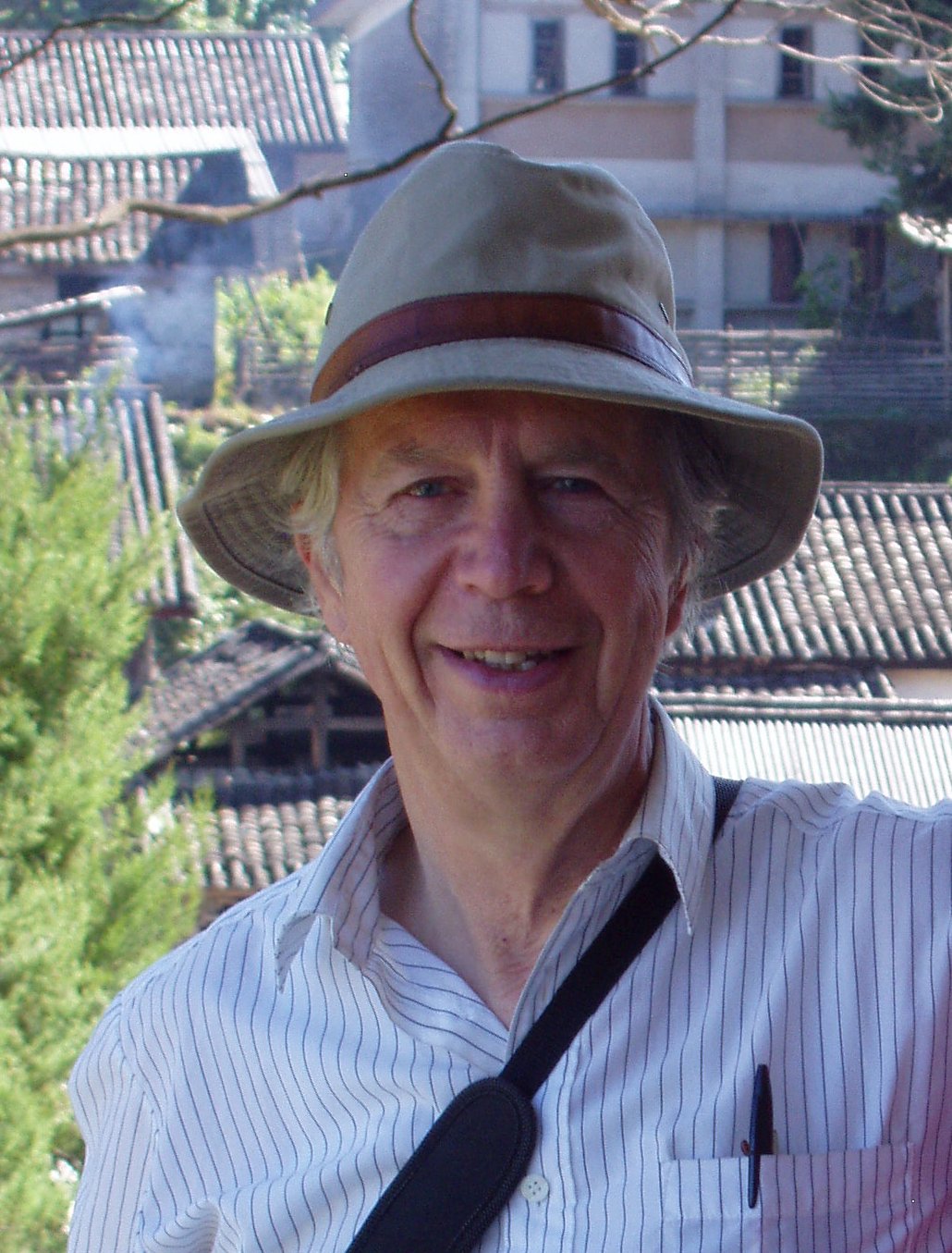 Alan Macfarlane is Emeritus Professor of Anthropological Science at the Department of Social Anthropology and a Life Fellow of King's College. His anthropological research has taken him to Europe, the Himalayas, Japan and China, and his long-term projects include Digital Himalaya and Digital Orient.
Alan Macfarlane is Emeritus Professor of Anthropological Science at the Department of Social Anthropology and a Life Fellow of King's College. His anthropological research has taken him to Europe, the Himalayas, Japan and China, and his long-term projects include Digital Himalaya and Digital Orient.
India links: born in India; has conducted research on the Naga peoples of the North-Eastern frontier of India and Burma; in August 2009 launched Reflections on Cambridge in India, published by Social Science Press.
[Homepage]
[New book launched in India]
Professor James Mayall
Centre for International Studies
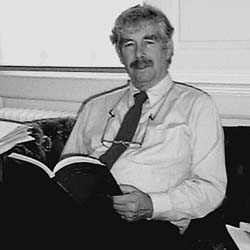 Professor Mayall has been the Patrick Sheehy Professor of International Relations since 1997. His research and writing has concentrated on the resurgence of ethnic, national, and religious conflicts since the end of the Cold War and the international reaction to them.
Professor Mayall has been the Patrick Sheehy Professor of International Relations since 1997. His research and writing has concentrated on the resurgence of ethnic, national, and religious conflicts since the end of the Cold War and the international reaction to them.
India links: involved in the Pavate Fellowship scheme that supports Indian visiting scholars in international relations, business studies and applied mathematics.
[Homepage]
[News story: Visiting Fellowships for Indian academics]
Dr Perveez Mody
Division of Social Anthropology
Perveez Mody is a Lecturer in Social Anthropology, and a Fellow of King's College. She teaches the ethnographic area paper on the anthropology of South Asia, and works on love-marriage in urban India, gender, kinship, sexuality. Her book, The Intimate State: Love-Marriage and the Law in Delhi is an ethnographic account of love-marriage in contemporary urban India and explores the colonial history and legacy of civil marriage legislation for Indians in the post-colonial context. Her research interests lie in urban anthropology, law and anthropology, kinship, sexualities and the anthropology of care.
[Homepage]
Dr Amrita Narlikar
Centre for International Studies
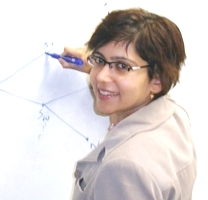 Dr Amrita Narlikar is University Senior Lecturer in International Relations at the department of Politics and International Studies, and a Fellow of Darwin College. Her research lies in the areas of trade negotiations, rising powers, and international organizations.
Dr Amrita Narlikar is University Senior Lecturer in International Relations at the department of Politics and International Studies, and a Fellow of Darwin College. Her research lies in the areas of trade negotiations, rising powers, and international organizations.
India links: Senior Research Consultant at the WTO Centre at the Indian Institute of Foreign Trade, and Adjunct Senior Fellow at the think-tank Research and Information System for Developing Countries (RIS), Delhi. Research collaboration with the Centre for International Trade and Development, School of International Studies, Jawaharlal Nehru University, Delhi.
[Homepage]
Dr Norbert Peabody
Wolfson College
Dr Norbert Peabody is an anthropologist and historian, whose research focuses on Indian nationalism during the 19th and 20th centuries. He is a Senior Research Fellow in Anthropology at Wolfson College.
India links: Author of Hindu Kingship and Polity in Precolonial India, which won the Gladstone History Book Prize in 2003. He currently has two book projects in preparation. The first explores the synergies that developed between the styles of nationalist discourse that were emerging in India and in the UK during the first half of the 19th century. The second concerns how technologies of the body that are deployed during the course of collective, anti-Muslim violence are shaping contemporary 'Hindu' nationalism in India.
[Homepage]
Dr Cameron Petrie
Department of Archaeology
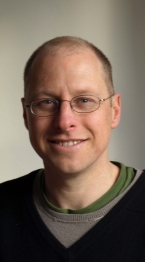 Dr Petrie is a RCUK fellow in South Asian and Iranian Archaeology. His research combines archaeological, archaeometric, and historic data to assess long term socio-economic and political developments, particularly in relation to state formation and the impact that the growth of states and empires have on the society and culture of subjugated regions.
Dr Petrie is a RCUK fellow in South Asian and Iranian Archaeology. His research combines archaeological, archaeometric, and historic data to assess long term socio-economic and political developments, particularly in relation to state formation and the impact that the growth of states and empires have on the society and culture of subjugated regions.
India links: UKIERI-funded research with Dr Ravindra Nath Singh at Banaras Hindu University to explore cultural and geographical transformation of north-west India between 2000 and 300 BC.
[Homepage]
- In this section
- Economics
- Education
- History & Culture
- Understanding Humanity
